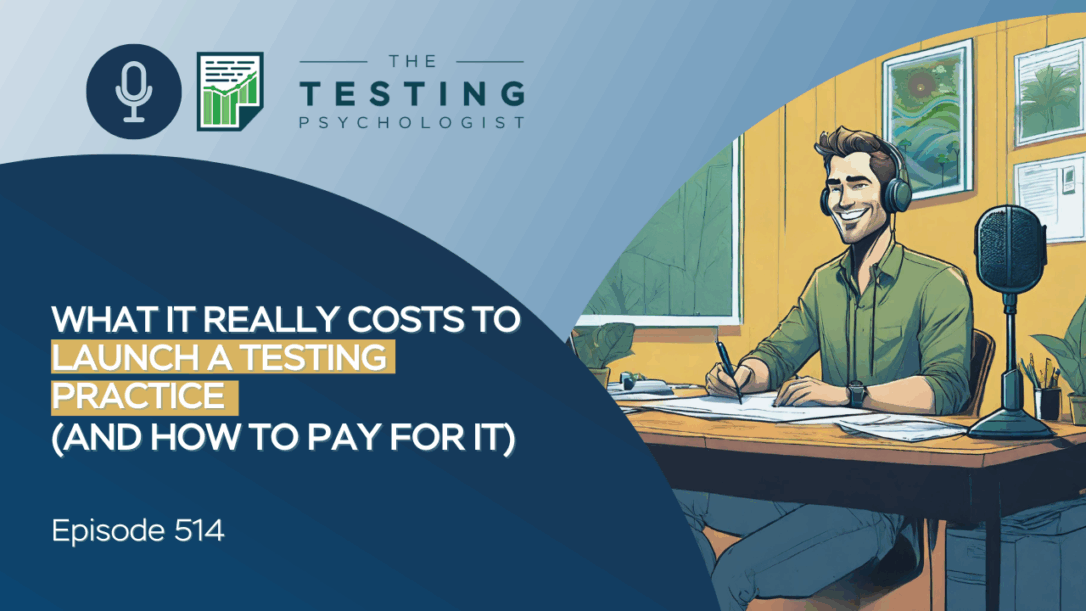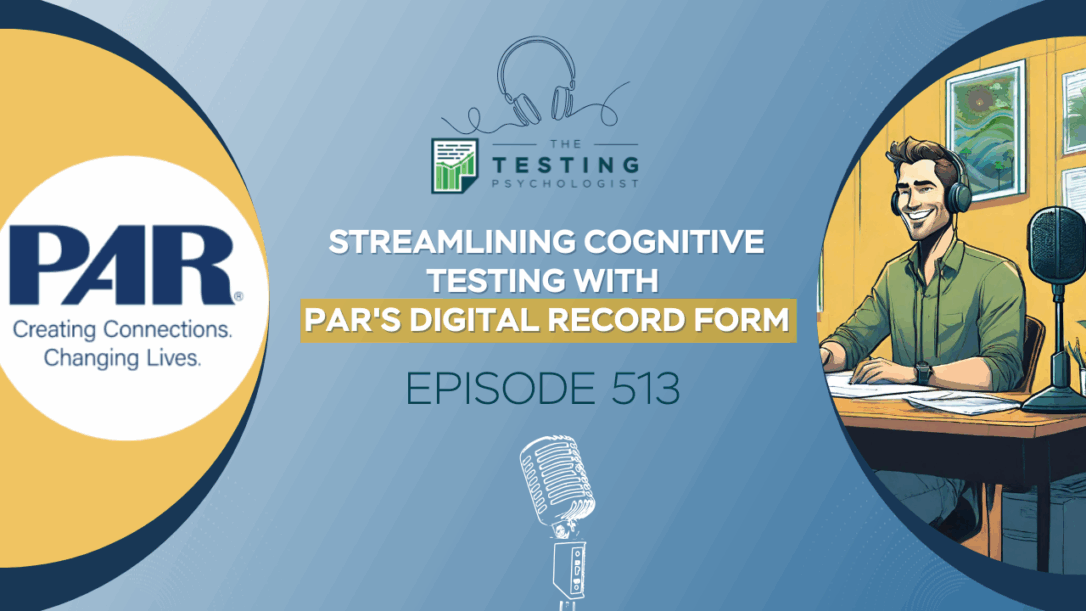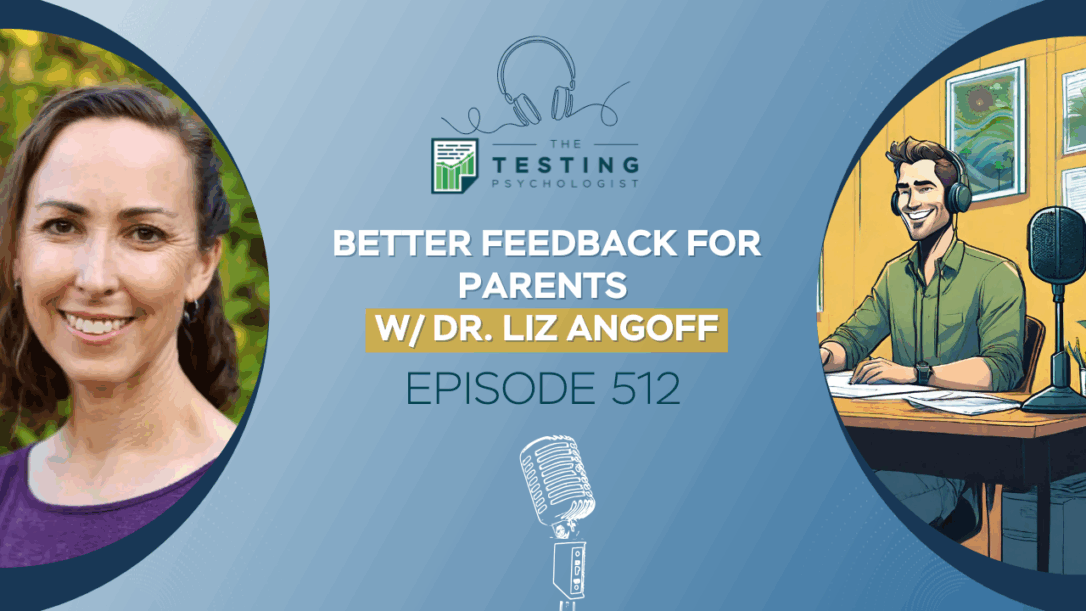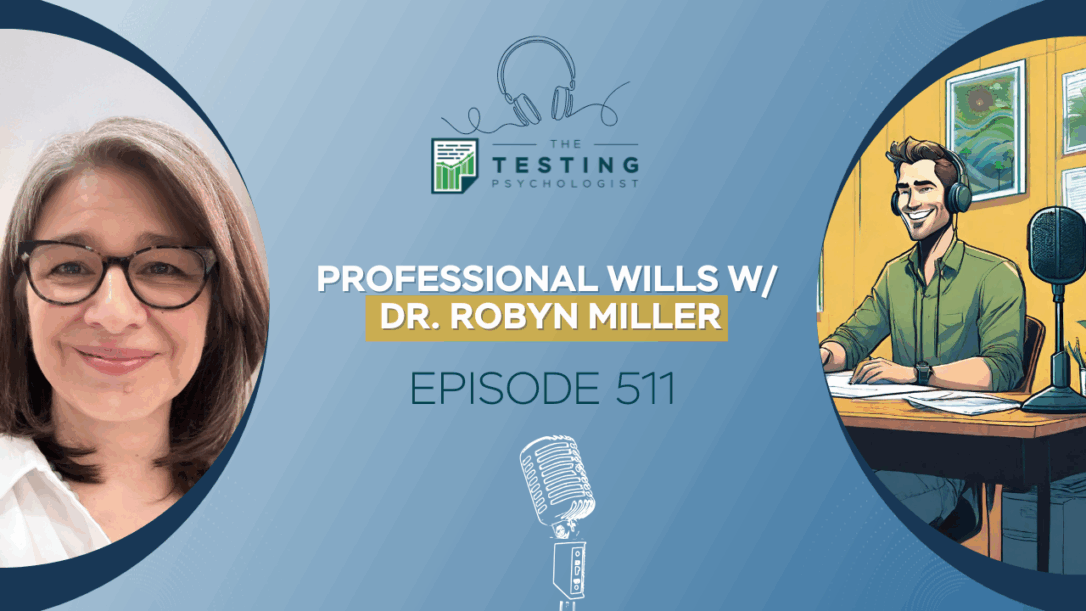[00:00:00] Dr. Sharp: Hello, everyone. Welcome to The Testing Psychologist podcast. I’m your host, Dr. Jeremy Sharp, licensed psychologist, group practice owner, and private practice coach. Many of y’all know that I have been using TherapyNotes as our practice EHR for over 10 years now. I’ve looked at others, and I just keep coming back to TherapyNotes because they do …
514. What It Really Costs to Launch a Testing Practice (and How to Pay for It)
In this episode, I break down one of the most common and anxiety-inducing questions I hear: “How much does it actually cost to start a private testing practice?”
514 Transcript
[00:00:00] Dr. Sharp: Hello, everyone. Welcome to The Testing Psychologist podcast. I’m your host, Dr. Jeremy Sharp, licensed psychologist, group practice owner, and private practice coach. Many of y’all know that I have been using TherapyNotes as our practice EHR for over 10 years now. I’ve looked at others, and I just keep coming back to TherapyNotes because they do …
513 Transcript
[00:00:00] Dr. Sharp: Hello, everyone. Welcome to The Testing Psychologist podcast. I’m your host, Dr. Jeremy Sharp, licensed psychologist, group practice owner, and private practice coach. Many of y’all know that I have been using TherapyNotes as our practice EHR for over 10 years now. I’ve looked at others, and I just keep coming back to TherapyNotes because they do …
513. Streamlining Cognitive Testing with PAR’s Digital Record Form
In this episode of The Testing Psychologist, I had the pleasure of hosting a powerhouse group from PAR: Jenny Greene, Nikel Rogers-Wood, Cecil Randy Reynolds, and Randy Kamphaus.
512 Transcript
[00:00:00] Dr. Sharp: Hello, everyone. Welcome to The Testing Psychologist podcast. I’m your host, Dr. Jeremy Sharp, licensed psychologist, group practice owner, and private practice coach. Many of y’all know that I have been using TherapyNotes as our practice EHR for over 10 years now. I’ve looked at others, and I just keep coming back to TherapyNotes because they do …
512. Better Feedback for Parents w/ Dr. Liz Angoff
Dr. Liz Angoff returns to dive deeply into the art and structure of feedback sessions with parents.
511 Transcript
[00:00:00] Dr. Sharp: Hello, everyone. Welcome to The Testing Psychologist podcast. I’m your host, Dr. Jeremy Sharp, licensed psychologist, group practice owner, and private practice coach. Many of y’all know that I have been using TherapyNotes as our practice EHR for over 10 years now. I’ve looked at others, and I just keep coming back to TherapyNotes because they do …
511. Professional Wills w/ Dr. Robyn Miller
In this powerful episode, I sit down with Dr. Robyn Miller to explore why every mental health practitioner needs a professional will.
510 Transcript
[00:00:00] Dr. Sharp: Hello, everyone. Welcome to The Testing Psychologist podcast. I’m your host, Dr. Jeremy Sharp, licensed psychologist, group practice owner, and private practice coach. This episode is brought to you by PAR. Psychologists need assessment tools for a more diverse population these days. PAR is helping by making many of their Spanish print forms available online through PARiConnect. …




